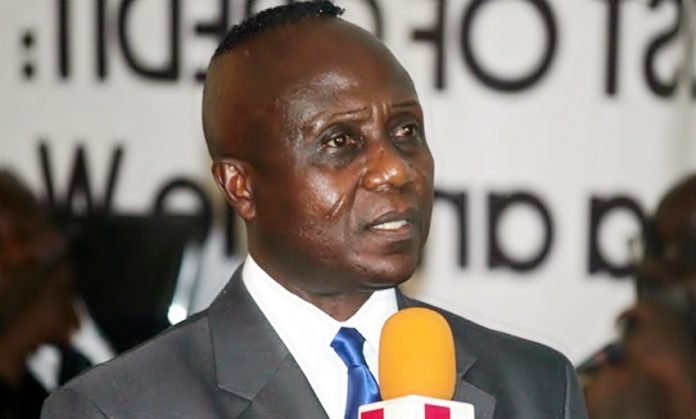The Institute of Economic Affairs says the International Monetary Fund programme is not new and therefore it contains a range of fiscal and monetary measures that it has long advocated.
The IMF programme has incorporated revenue-enhancing measures including new levy for high-profitmaking companies such as financial institutions, telecom firms and extractives companies; plugging some tax loopholes including customs exemptions, underexploited property taxes and strengthening tax administration to improve compliance and minimise evasion.
The IEA, argued, it has long called for these tax measures to be implemented to raise Ghana’s tax to Gross Domestic Product (GDP) from its relatively low level.
The programme plans frontloaded fiscal consolidation to bring public finances back on a sustainable path. It also recognises that a substantial and front-loaded fiscal adjustment had started with the 2023 budget.
IEA surprised multilateral creditors not part of debt restructuring
The government had also launched a comprehensive debt restructuring, including both domestic and external debt, to place debt on a sustainable path.
The programme stressed that effective collaboration by all parties involved would be critical, reiterating the point that all was not done and dusted yet as far as the debt restructuring requirement was concerned.
The IEA however said it is curious that multilateral creditors, who together held about 29% of Ghana’s external debt in 2021, were not part of the debt restructuring.
“Their absence seems to be contrary to their call for burden sharing among creditors”, it mentioned.
Furthermore, the programme recognises that Ghana’s tax-to-Gross Domestic Product (GDP) ratio has been low compared to its peers, with non-oil revenues stagnating in recent years.
Defects in tax system
Continuing, the IEA said "tax policy design suffers from widespread tax expenditures (comprising provisions in the tax code, such as exclusions, deductions, deferrals, credits, and tax rates that benefit specific activities or groups of taxpayers and estimated around 4% of GDP), especially in VAT, and underexploited taxes (property tax, excises). Weaknesses in revenue administration continue to be reflected in limited compliance and recoveries”.
The IEA assed “These are defects in our tax system that we have pointed out continually and called for their resolution, without much success”.
To address these challenges and achieve the program’s revenue mobilization objectives, government was said to be preparing a Medium-Term Revenue Strategy (MTRS). This strategy would focus on tax policy and revenue administration measures necessary to reach the program revenue objectives over the 2023-26 period.
The 2023 budget and associated bills enacted as a prior action for the programme, were said to be consistent with the revenue-enhancement objectives.
But the IEA noted that Ghana’s fiscal problems are said to be rooted in structurally weak domestic revenue mobilization.
This compelled the IMF Fiscal Affairs Department (FAD) tax diagnostic mission to identify potential measures to sustainably generate significant revenue while addressing efficiency and equity concerns. They include removing VAT exemptions, reforming the company income tax by phasing out tax holidays and exemptions and strengthening safeguards against profit shifting, among others.
The IEA pointed out that the lapses in Ghana’s tax systems that have stifled revenue mobilisation are all too-well known to the country and “we have been calling for appropriate remedial measures, in particular relating to plugging the numerous loopholes and strengthening administration to reinforce compliance and minimise evasion.”
“We, therefore, welcome the inclusion of many of these measures in the programme and call for their strict enforcement”, it concluded.
Latest Stories
-
‘Man gives the award, God gives the reward’ – Denzel Washington addresses Oscars snub
54 minutes -
BoG announces new set of regulatory measures to check NPLs
1 hour -
BoG urges financial institutions to maintain a robust credit risk management framework
2 hours -
Fire officers contain inferno at Nogora commercial enclave at Ho Technical University
2 hours -
European leaders tentatively hopeful after call with Trump ahead of Putin summit
2 hours -
Trademarks are not one size fits all; register them by class – Sarah Norkor Anku tells SMEs
3 hours -
Cardinal Turkson urges caution and discernment in interpreting prophecies
4 hours -
NPP activists Sir Obama Pokuase, Fante Comedy granted bail but remain in custody
4 hours -
Man sentenced to 10 years for robbery-related offences in Tumu
5 hours -
OR Foundation partners with GNFS to train Kantamanto traders on fire safety
5 hours -
Mob attacks IGP’s special anti-galamsey taskforce at Bonteso in Ashanti region
5 hours -
Mireku Duker denies media reports on presidential ambition
5 hours -
Suspended Chief Justice pays tribute to victims of helicopter crash
5 hours -
Guinness Ghana DJ Awards 2025: Smirnoff-powered Pub Fest ignites Winneba with top DJs
5 hours -
Kumasi Archbishop leads delegation to console Asantehene over Asantehemaa’s passing
6 hours

